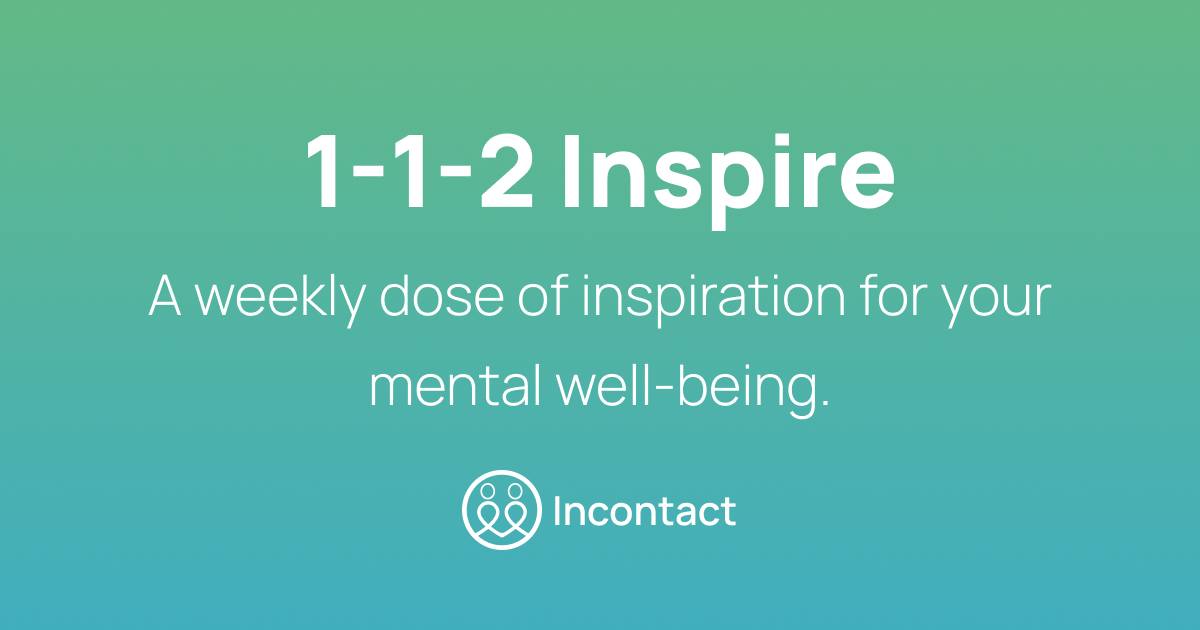- 1-1-2 Inspire
- Posts
- 1-1-2 Inspire: What happens when an introvert acts like an extrovert?
1-1-2 Inspire: What happens when an introvert acts like an extrovert?
Edition #16

Hi there, I’m Aarti, Founder and Lead Counsellor at Incontact. In our last edition, we explored the myth of a fixed personality and questioned whether “authenticity” always leads us in the right direction. Today, I want to take that idea a step further by zooming in on one of the most widely accepted personality binaries: introversion vs. extroversion.
As a counsellor, I’ve worked with both ends of the spectrum. Some clients feel drained in crowds, others come alive in them. There’s no right or wrong here—just different ways of being.
Here's a gentle challenge to those who identify as introverts:
Give yourself permission to sometimes act like an extrovert.
This is not to change who you are, but to stretch into something that might quietly enrich your life.
Why would an introvert even want to do that?
Social connection is one of the strongest contributors to our long-term well-being—right up there with meaning, gratitude, and mindfulness. I’m of course not talking about your social media connections, but real-life ones.
Even for people who cherish solitude, connection plays a quiet but powerful role in how grounded and fulfilled we feel over time.
For extroverts, that kind of connection often weaves easily into the day through casual chats, group gatherings, or spontaneous check-ins with friends. For introverts, it tends to require more intention—and sometimes, more courage. But that doesn’t mean you need to become someone you're not.
It could look like finally agreeing to that one-on-one coffee your colleague has been suggesting—not because you're bursting with energy, but because something in you values the conversation. Or joining a weekend sourdough baking group where the focus is more on doing than talking—yet still leaves room for occasional laughter and shared presence.
These moments might feel small or even effortful at first. But more often than not, they create a quiet lift, a ripple of energy or warmth that shows up after the fact, not right away.
Despite knowing that acting like an extrovert sometimes can be good for you, it can still feel difficult. Why?
What holds us back?
Many introverts worry that reaching out or initiating would feel “fake”—like putting on a mask that doesn’t fit.
Surprisingly, this study shows that introverts reported feeling more like themselves engaging in a behaviour that felt like being an extrovert! They felt more like “being themselves”.
When you move through the initial discomfort and engage in line with your deeper values, it doesn’t feel “pretend” anymore.
Authenticity isn’t just about comfort zones. It’s about choosing what matters, even when it’s slightly uncomfortable.
Values like connection, growth, presence, joy—those aren’t reserved for the extroverted.
How to try small moments of extroversion?
1. Practice “low-stakes extroversion”
Talk to one new person this week—someone you’d usually smile at and pass by. A shopkeeper, a fellow dog-walker, your neighbor’s kid. Keep it light and brief.
We often hear about the importance of deep, meaningful connections. But what we don't talk about enough is the value of weak ties—those casual, fleeting interactions with people we don’t know well. These micro-connections have been shown to boost our sense of belonging and well-being.
Your conversation with a fellow dog-walker might last only a couple of minutes and stay surface-level. Occasionally, you might click and become real friends. But even if you don’t, the exchange still matters. It reminds you that you're part of a wider social web.
2. Join a group activity
Pick something structured, so the focus is more on doing, less on talking. A pottery class, a hiking group, a weekend language meet-up. You don’t have to be the loudest or most outgoing person there—just showing up is enough.
Activities like these offer natural opportunities to connect without pressure. You can be around others, participate, and let conversations happen organically. It’s less about talking, more about sharing space with people who enjoy the same thing. Over time, these shared experiences can lay the groundwork for real connection—often without needing to “perform” socially.
Extroversion and introversion aren’t rigid, lifelong labels. They shift—sometimes with age, sometimes with culture, and often depending on the context we’re in. We’re not fixed types. We’re fluid beings.
Instead of defining ourselves as one or the other, maybe it’s more helpful to stay curious about what traits serve us best in a given season or situation.
Everyone needs solitude for rest and self-reflection. And everyone, even the most solitude-loving among us, needs some form of social connection—for grounding, for joy, for meaning.
It’s not about becoming someone else. It’s about trying something new, gently. Stretching a little. Exploring what might quietly surprise you.
Sometimes, the unexplored parts of ourselves hold exactly what we’ve been needing.
Warm wishes,
Aarti
Reply